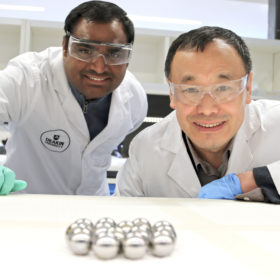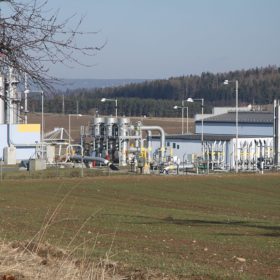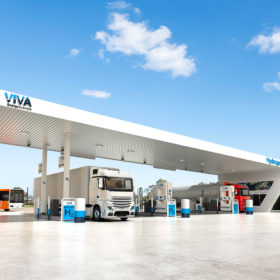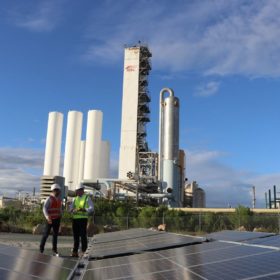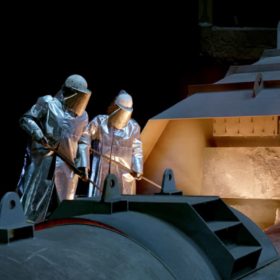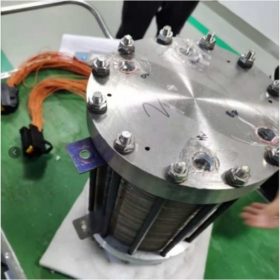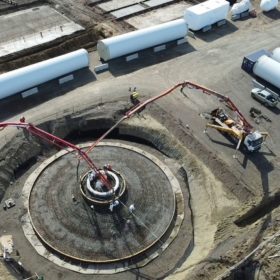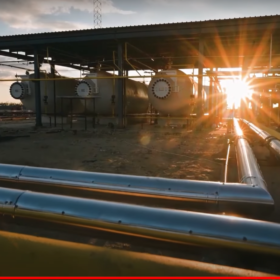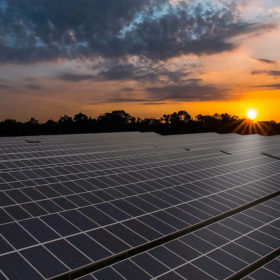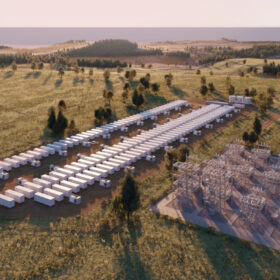‘Entirely novel’ mechanochemical breakthrough for storing hydrogen
Researchers at Melbourne’s Deakin University have discovered a novel way to separate, store and transport large amounts of gas. The method, they say, is efficient, affordable and creates no waste – carrying huge implications for the burgeoning green hydrogen industry and for the energy transition at large.
Oil and gas reservoirs are cheapest options for underground hydrogen storage
New research from Ireland shows that depleted oil and gas reservoirs may be used to store hydrogen at a cost of US$1.29/kg (AU$1.9/kg). According to the researchers, underground hydrogen storage may benefit from the technological maturity of the geologic storage of natural gas and CO2, which are associated with decades of established knowledge.
Viva strikes deal for 2.5 MW electrolyser as states pursue green hydrogen highway
Geelong oil refinery owner Viva Energy is driving ahead with plans to establish Australia’s first publicly accessible commercial green hydrogen refuelling station in Victoria, announcing it has placed a $5.93 million (€4 million) purchase order with Norwegian company Nel Hydrogen for the supply of a 2.5 MW electrolyser.
BOC partners with bp to build ‘Australian first’ green hydrogen refuelling facility
Oil and gas major bp Australia has teamed with gas and engineering company BOC to build what it describes as the first green hydrogen refuelling facility to be installed at an existing petrol station in Australia.
Global electrolyser market to reach 8.5 GW by 2026
GlobalData has predicted that the global electrolyser market will hit 8.52 GW by 2026. BP and Thyssenkrupp have agreed to cooperate on the use of hydrogen in the steel sector, while electrolyser supplier Nel Hydrogen has secured orders in Australia and Denmark
PEM electrolysis coupled with thermal energy storage
Chinese researchers claim to have improved the performance of a proton exchange membrane electrolyser by connecting it to a thermal energy storage system.
Porsche-backed conglomerate targets renewable energy fuels facility in Tasmania
Porsche-backed HIF Global has lodged plans with Tasmania’s Environment Protection Authority to build a renewables-powered green hydrogen facility in the state’s north-west that would be used to produce a “highly competitive” e-fuel, or electricity-based fuel, that can be directly substituted for fossil fuels in conventional car engines.
1.5 GW green hydrogen project in India from Acme
Indian developer Acme will set up a green hydrogen and ammonia project in Tamil Nadu with 1.5 GW of electrolysis capacity and 1.1 million tons of ammonia synthesis, powered by a 5 GW solar plant.
Queensland airline unveils plan to use hydrogen planes on regional routes
Queensland regional airline Skytrans Airlines and engineering firm Stralis Aircraft plan to develop and trial a hydrogen electric propulsion aircraft by 2026.
Provaris lodges submission for 2.8 GW green hydrogen project
Western Australian renewables company Provaris Energy has lodged a referral submission to the Northern Territory Environment Protection Authority for its proposed 2.8 GW green hydrogen export project being developed on the Tiwi Islands off Australia’s north coast.
